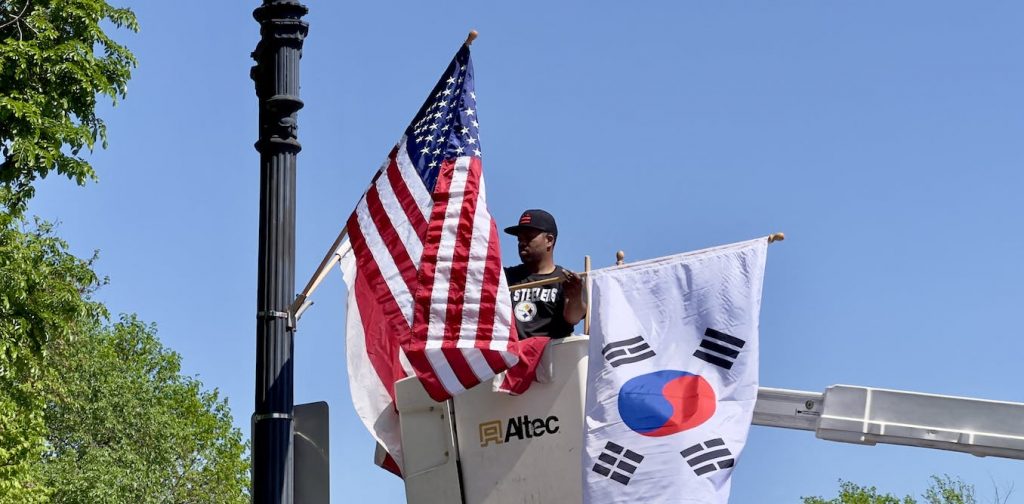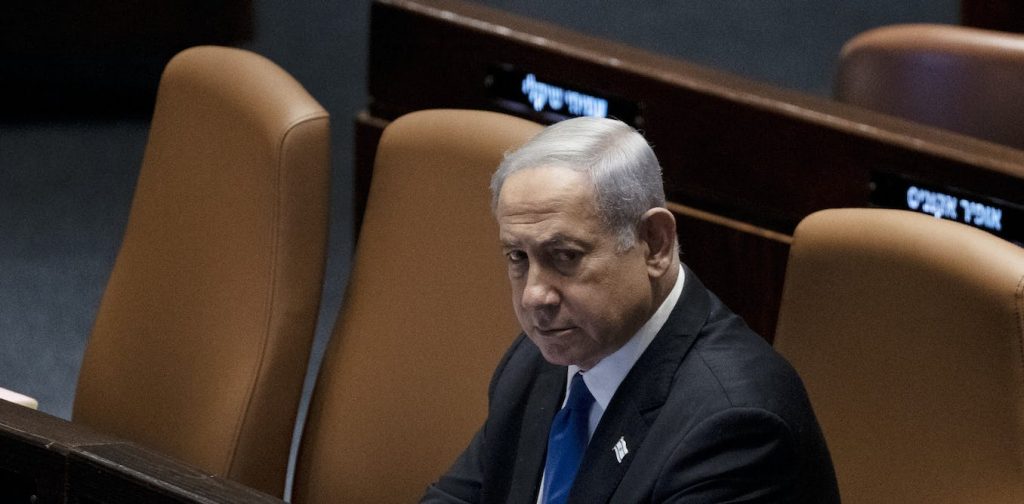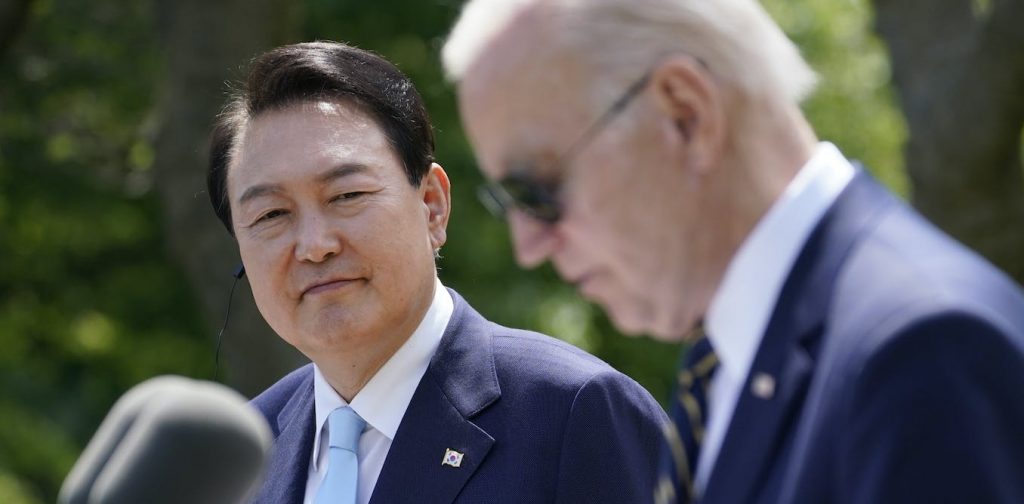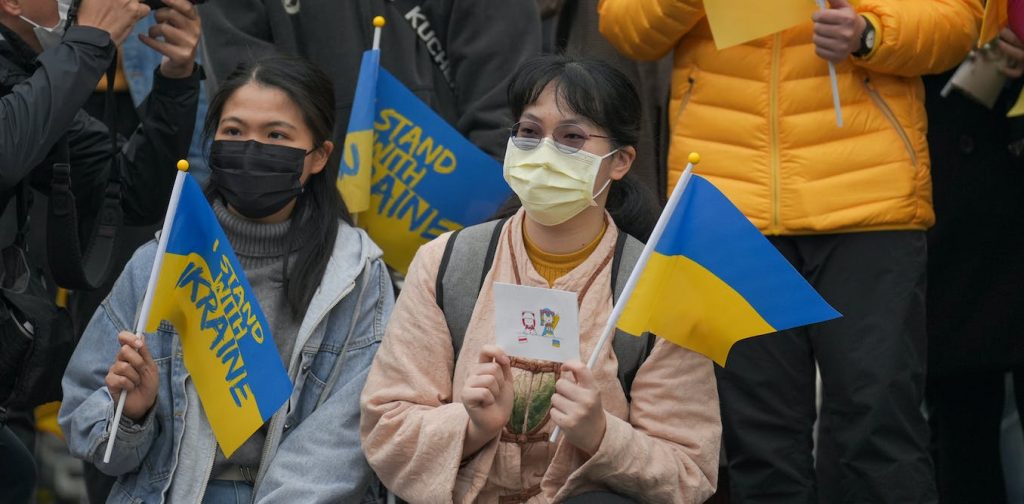Solidarity and symbolism the order of the day as US, Japan and South Korea leaders meet at Camp David
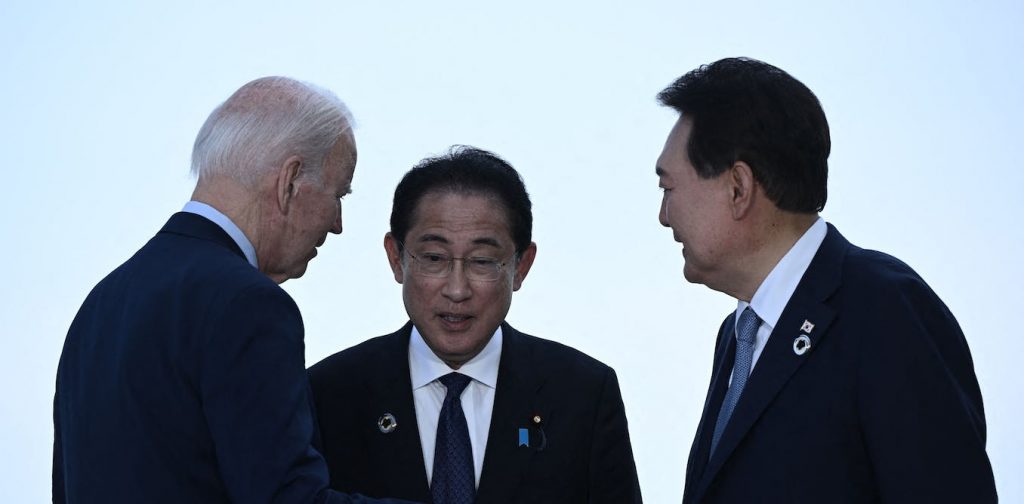
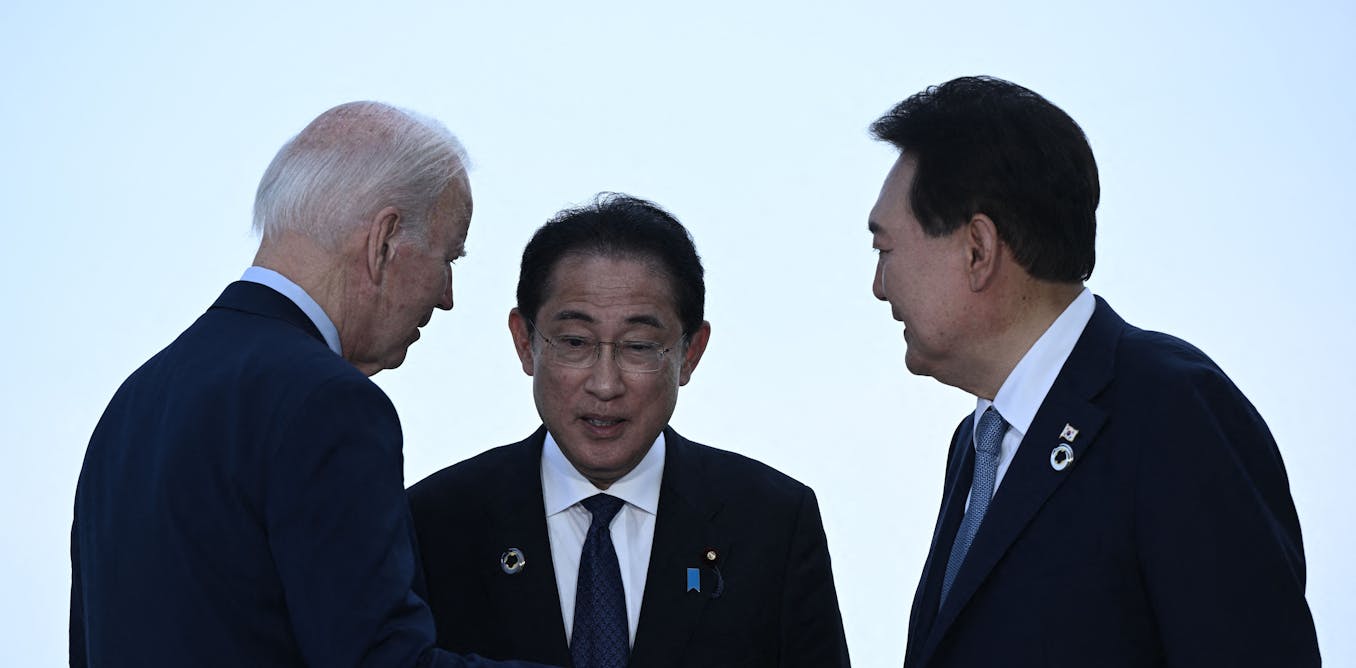
Camp David is associated with some special moments in diplomacy. In 1978, the presidential retreat in Maryland hosted Egyptian President Anwar al-Sadat and Israeli Prime Minister Menachem Begin – leading to the first peace treaty between Israel and an Arab state.
Although not quite on that level, the trilateral meeting being held at the location on Aug. 18, 2023 – between President Joe Biden, South Korean President Yoon Suk Yeol and Japanese Prime Minister Fumio Kishida – is nonetheless of great significance.
It represents a culmination of substantial advancements in the relationship between the three countries over the past year, based on the furthering of reconciliation between two historically antagonistic East Asian nations, and a commitment by all three countries to a common vision for the future of the Indo-Pacific region.
As an expert on U.S.-East Asian foreign relations, I believe the importance of this meeting cannot be overestimated – both for reasons symbolic and strategic; domestic and global. For many observers in Japan and South Korea, images of the two nations’ leaders standing together and putting aside their political differences at such a venue will be deeply meaningful, if controversial for some. Meanwhile the show of solidarity between all three men will be geared towards outside countries, notably China.
A united front
This first standalone meeting among the three leaders is a follow-up to their brief gathering in May on the sidelines of the G7 summit in Hiroshima. It is also the first visit of any foreign leader to Camp David since 2015.
The summit takes place at a time of heightened U.S.-China rivalry and an undermining of global norms by the Russian invasion of Ukraine.
With that in mind, expect a heavy focus on the symbolism of the meeting. Pictures and videos of the three leaders together will likely be carefully staged and scrutinized not only in the U.S., Japan and South Korea but also in China, Russia and North Korea.
The message that Biden, Yoon and Kishida want to send is clear: The three nations stand solidly against any and all threats to the region.
And although there likely won’t be a formal security alliance established among the three countries, due to reluctance in Tokyo and Seoul, the summit will result in steps toward greater coordination. This will reportedly include a “three-way hotline” and plans for an annual leaders summit.
Playing to a domestic crowd
While presenting a unified front to current or potential common adversaries, all three leaders will also have an eye towards their domestic audiences.
President Yoon entered office in May 2022 prioritizing improvement in Japan-South Korea relations. This came at significant political risk domestically. Diplomatic relations between the two countries have been at a low point in recent years – as has public opinion towards Japan within South Korea.
The points of antagonism are both deep-rooted and recent. Underscoring it are unresolved historical legacy issues relating to Japan’s colonization of Korea from 1910 to 1945. During that time Koreans endured cultural oppression, forced labor and sexual slavery at the hands of the Japanese.
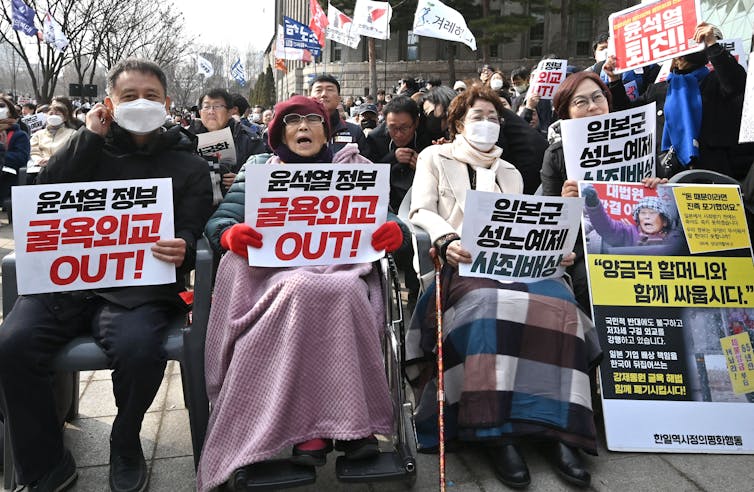 South Korean victims of Japan’s wartime forced labor and sexual slavery attend a rally in Seoul in March 2023. Jung Yeon-Je/AFP via Getty Images
South Korean victims of Japan’s wartime forced labor and sexual slavery attend a rally in Seoul in March 2023. Jung Yeon-Je/AFP via Getty Images
Recent moves in South Korea to address those wrongs have led to resentment in Japan, not least when the South Korean Supreme Court issued a series of rulings in 2018 in favor of plaintiffs seeking compensation from Japanese businesses for forced labor during the colonial period.
Since coming to power, Yoon has taken concrete steps to bolster relations between the two East Asian nations, including highlighting Japan as a “partner that shares the same universal values with us” in his 2023 speech marking the 1919 independence movement against colonial Japan.
In a further olive branch aimed at mitigating ill feelings over the court decisions, Foreign Minister Park Jin announced in March that the South Korean government was creating a foundation to collect donations and pay the compensation to forced labor survivors, rather than making demands of Japanese companies or the Japanese government.
This announcement was timed to come right before President Yoon’s visit to Tokyo – the first such visit of a South Korean leader to Japan in 12 years.
Prime Minister Kishida, who entered office in October 2021, initially approached President Yoon’s overtures with caution. Yet, by this May, relations had improved to such an extent that Kishida returned Yoon’s visit with his own trip to Seoul for a bilateral summit.
Diplomatic niceties
Better relations between Japan and South Korea benefits U.S. foreign policy goals in Asia. It forms the backbone of the U.S.‘s attempt to counter China’s influence in the region. As such, Washington has been working behind the scenes to pressure Japan and South Korea to improve bilateral ties.
Yet, the show of solidarity expected at Camp David does not mean that there aren’t ongoing issues that need to be addressed – or politely ignored in the name of diplomacy.
Global uncertainties, for example over the geopolitical fallout of the Ukraine war and a seemingly more aggressive China could lead the U.S. to play a more stabilizing role in East Asia. But it could also pull allies of Washington reluctantly into a conflict between the U.S. and other great powers.
And Japan and South Korea are also competitors, both economically and in courting the favor and attention of the U.S. Both East Asian nations are keen to leverage their relationship with the U.S to achieve their own goals in the region and globally.
There will also be critics of the meeting between Kishida and Yoon in both Japan and South Korea, for historical, diplomatic and political reasons.
The presence of the U.S. president and the location of the summit in such a famous venue will likely mitigate some of the criticism. This is especially the case if organizers can showcase Kishida and Yoon as equals in term of their partnership with the Biden administration, without one seeming to outshine the other.
Biden’s place in the world
In the U.S., the domestic audience will likely be less attentive than in Asia. But Biden still has much to gain. First, he can illustrate the value of his own vision for global leadership as one that successfully brings together allies – in contrast to that of the Trump administration and any other Republican White House contenders who seek to downplay the importance of alliances. Second, it will help convey an image of Biden as a strong world leader.
All three leaders face unprecedented challenges as they navigate their country’s role in a changing international system. Yet the symbolism of standing shoulder to shoulder at such a historic location should not be discounted. As the White House has said, this meeting is intended to open a “new chapter” in trilateral cooperation – displaying solidarity on the basis of the common values of democracy, freedom and international norms. It is a strong pitch. If followed through, the lasting legacy of the summit could go beyond the symbolic.
